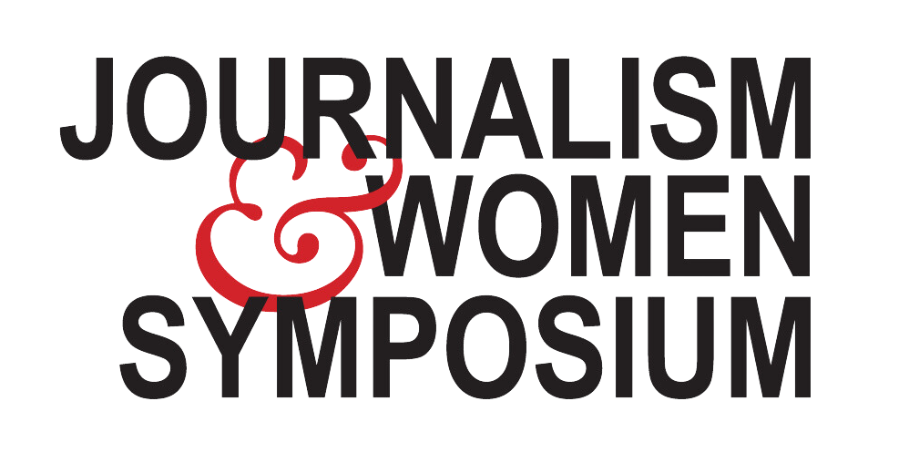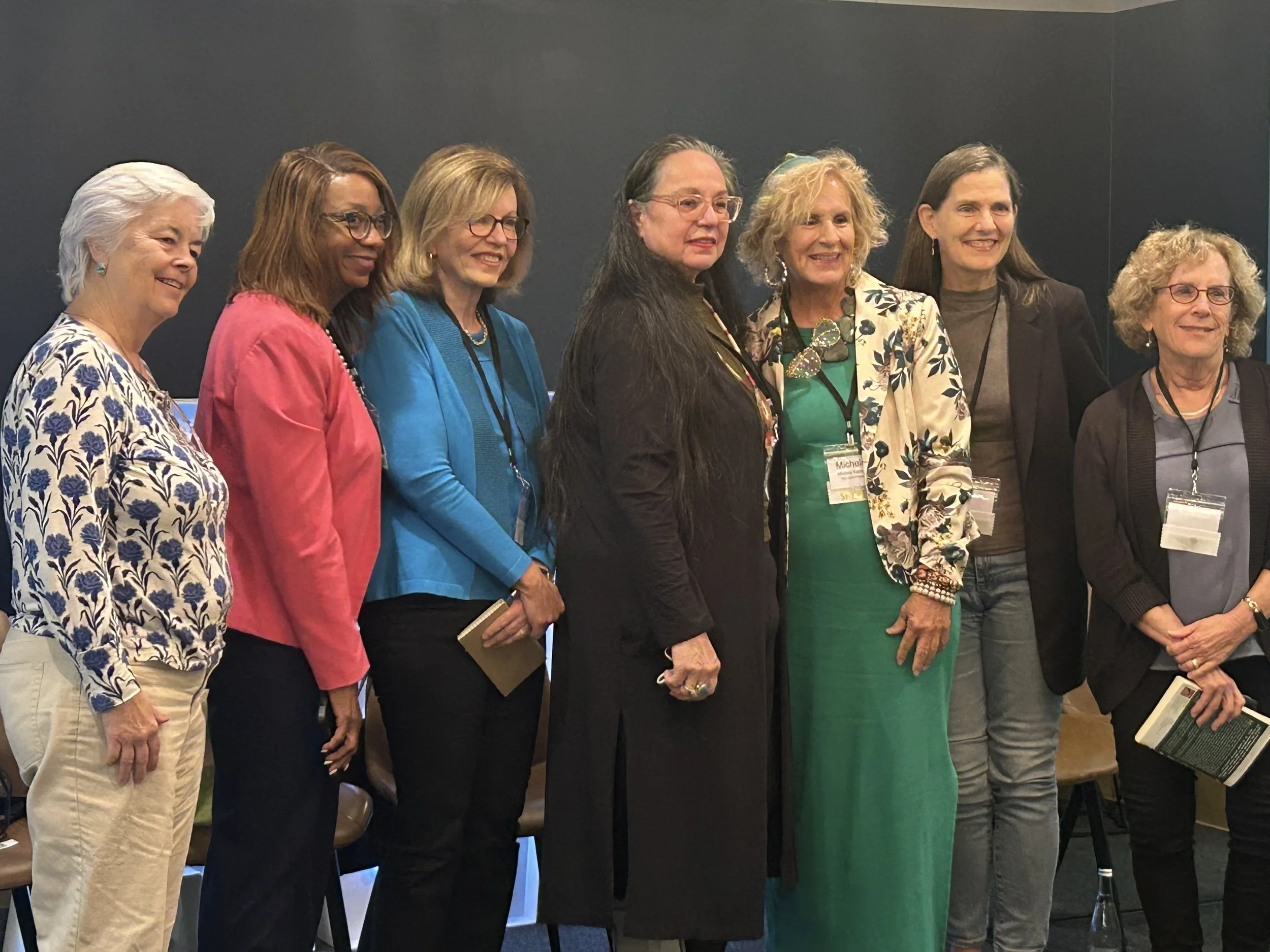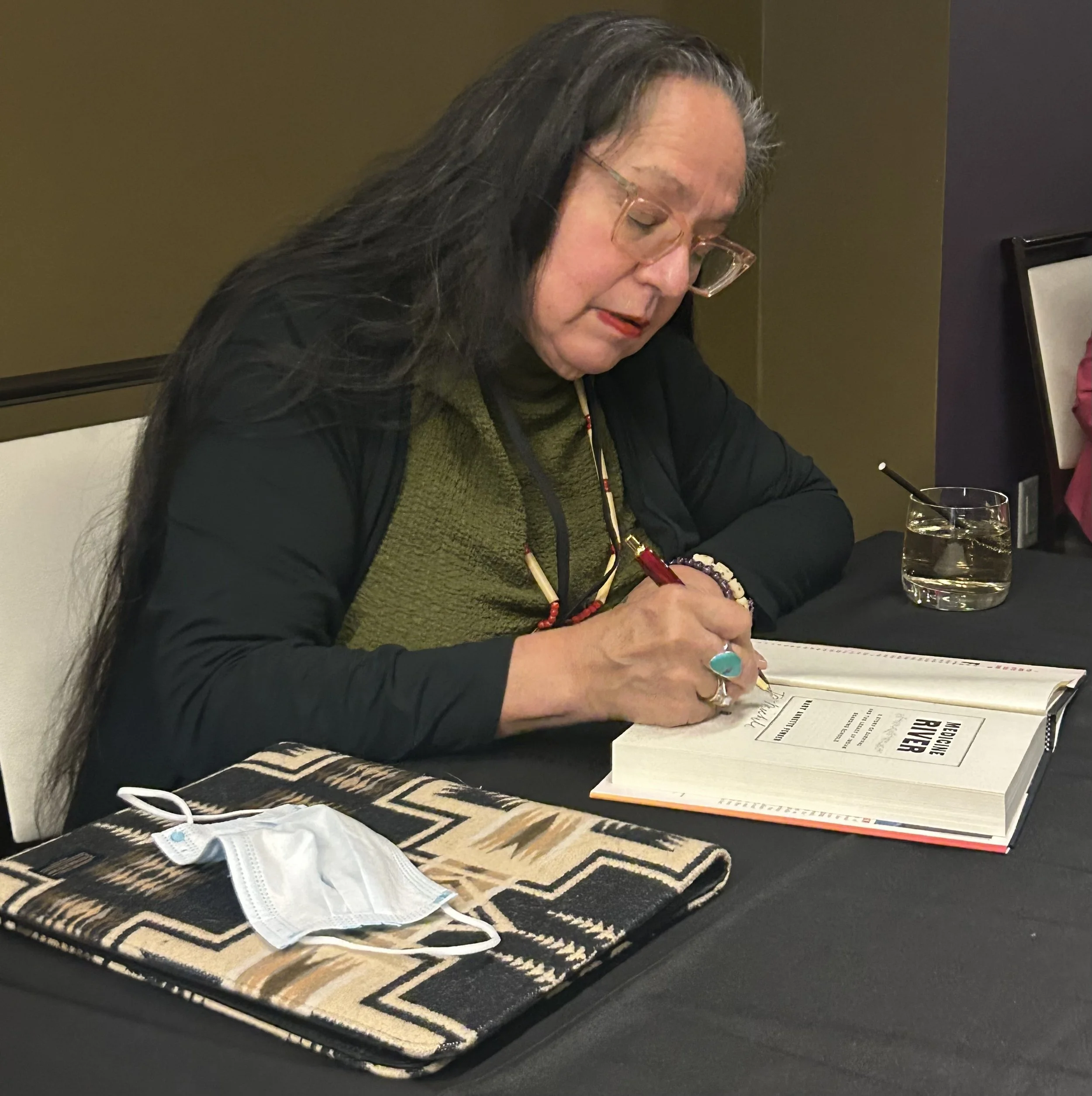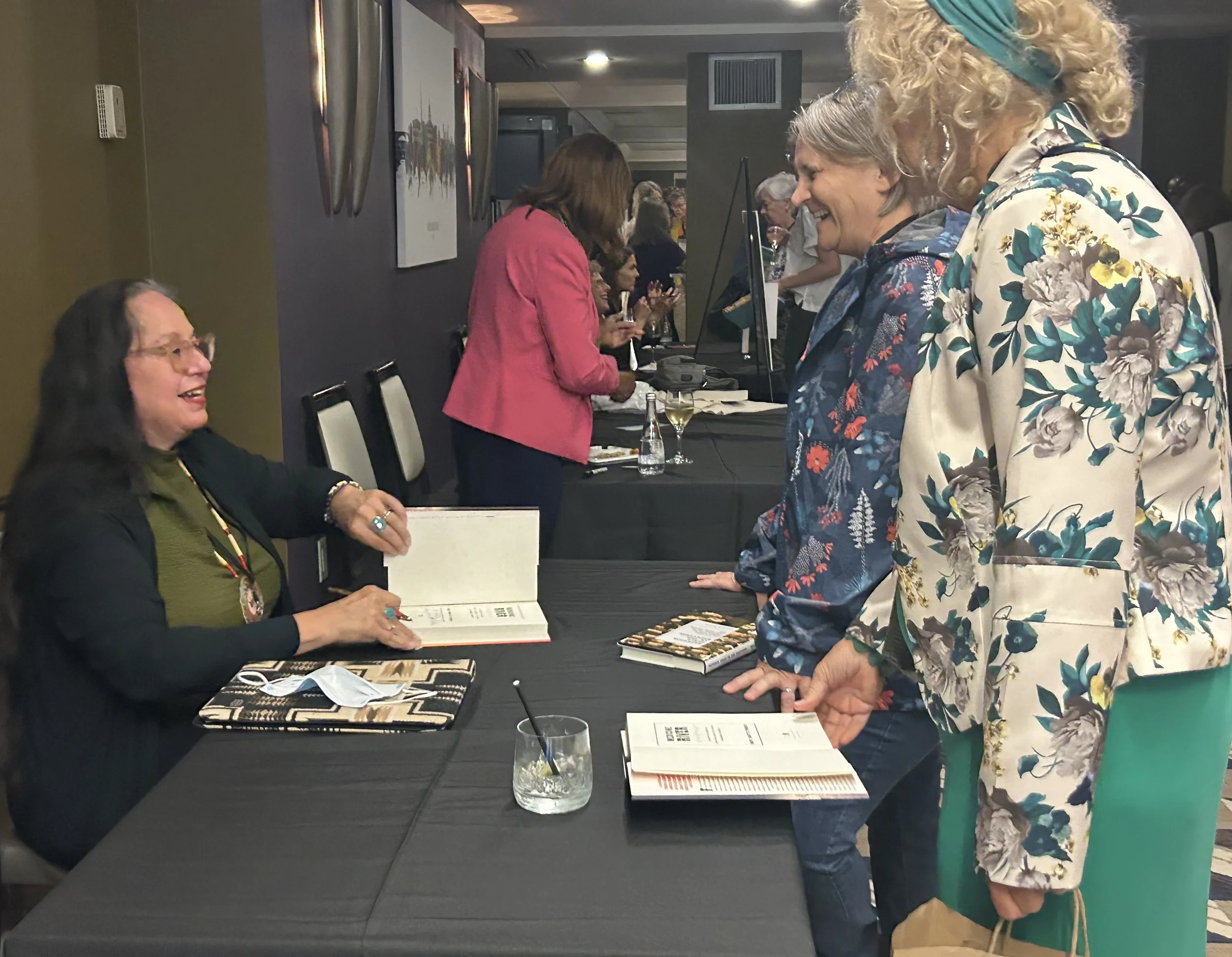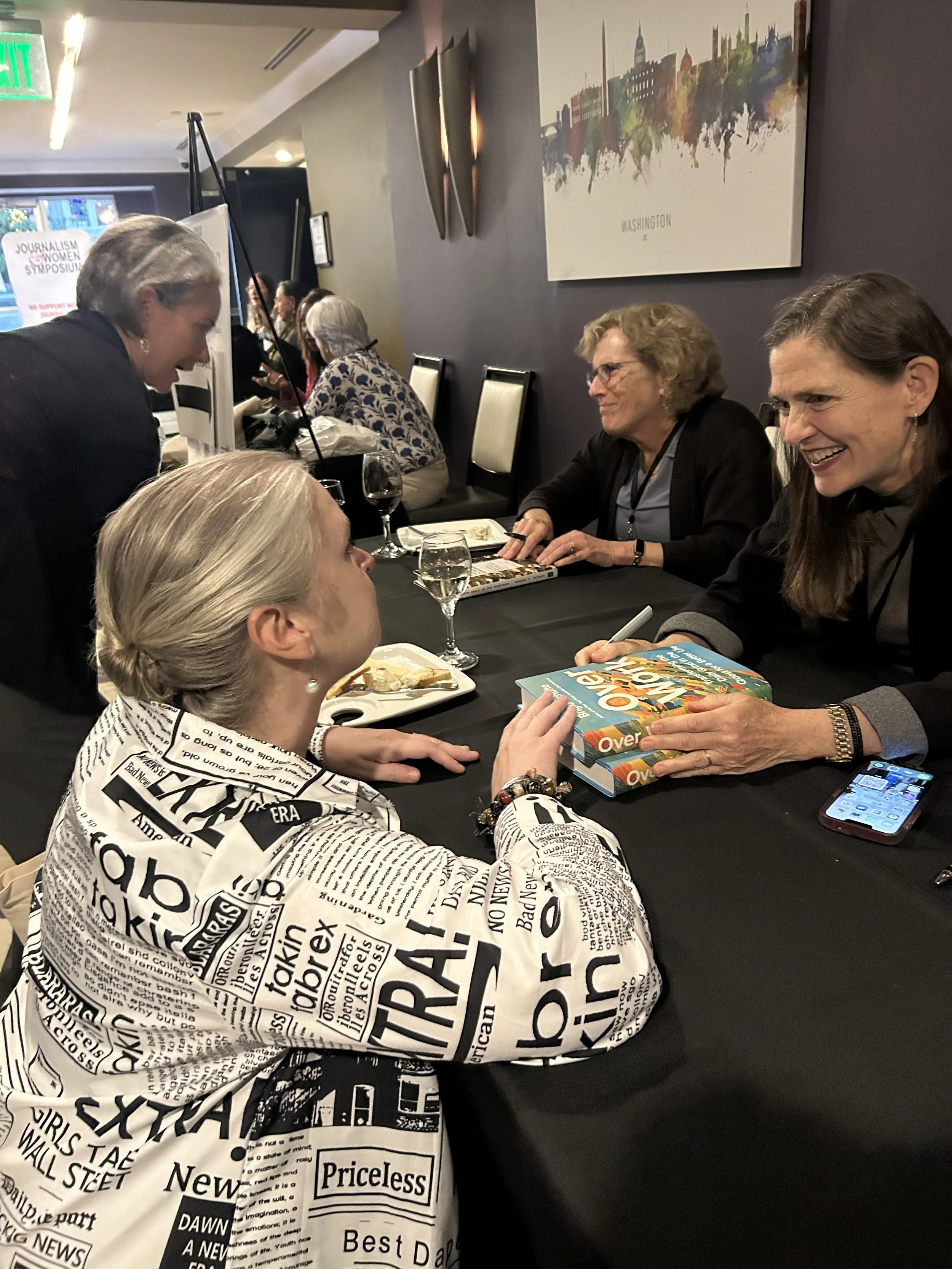JAWS CAMP 2025 Recap - Sessions You May Have Missed: Books & Browse
JAWS member Michele Weldon (left) in conversation with (seated from second to left to right) Maura Casey, Debbie Hines, Susan Page, Mary Annette Pember, Brigid Schulte and Miranda Spivack at JAWS CAMP 2025 in Washington, D.C. Photo by Nina Zacuto
(WASHINGTON, DC) - JAWS’ 40th Anniversary Conference and Mentoring Program (CAMP) was held September 5-7, 2025 at The Royal Sonesta Hotel in Washington, DC’s Dupont Circle neighborhood.
By Dorine Bethea, Copy Editor | The Washington Post (JAWS CAMP 2025 Volunteer)
Saturday, Sept. 6, 2025
A desire for better drives Brigid Schulte. That desire inspired her to report and report some more and, eventually, publish her most recent book.
“I wish I didn't have to write this book,” Schulte said. “I would love to wake up tomorrow and find that the world is a fair and equitable place, and that all people have the opportunity to live a good life … and to flourish.”
Her mission began decades ago. As a journalist for The Washington Post, the mother of two young children struggled to manage her family and work life. A woman’s time, she began to understand, has always been interrupted and undervalued.
“When women entered the workforce en masse in the ’70s – no surprise – women’s lives changed utterly, and very little else did,” Schulte said during the Books & Browse session. “Workplaces didn’t change appreciatively, public policies didn’t change appreciatively, and then we didn’t really talk about it. We didn’t write about it.”
Schulte is one of six authors who shared insights into how and why they decided to delve into urgent, timely and historical examinations of atrocities at Native American boarding schools, injustice in the criminal justice system, government corruption and fierce women – some famous and others who may become famous.
Michele Weldon, a longtime JAWS member and seven-time author, moderated the panel discussion that also focused on works by Maura Casey; Deborah Hines; Susan Page; Mary Annette Pember; and Miranda S. Spivack.
“They have done scrupulous reporting and tireless research, [creating] incredibly necessary and important nonfiction books that must be part of our modern conversation,” Weldon said. “Let us applaud them, not only for [their] incredible effort, but also for their authenticity.”
Casey focused on her mother, a “feminist before there was a word for it,” who was determined to help save her sister Ellen, who desperately needed a kidney transplant. “She was kick-ass,” Casey said, noting her mother defied her own father by joining the U.S. Army during World War II. “That prepared her for her own platoon of kids,” with Casey, the youngest.
Her mom was well prepared for her life’s crisis. The details escaped Casey, “a baby journalist” who has kept diaries since age 12. After connecting with a brilliant doctor, Mary Hawking – sister of famed physicist Stephen Hawking – Casey had the medical background she needed to write the book.
In her quest to help secure justice, Deborah Hines writes as a descendant of enslaved people, a former prosecutor, and a trial lawyer whose 16-year-old cousin was imprisoned for five years with hardened criminals following a wrongful conviction.
“The majority of everyone that is impacted in the criminal justice system are Black boys, Black teens and Black young adults,” Hines said. “But behind them are women. There are women who are their mothers, who are their daughters, who are changemakers who are making the difference.”
Hines highlights the efforts of those working to reform the system. “There are very few, but they are mighty, and they are working toward justice and not looking at punishment but looking at programs,” she said.
In the media, few can dispute the impact of journalist Barbara Walters on the industry and women who entered it after her ground-breaking career. Yet, as Page points out, “women who have done remarkable things are less likely to have biographies written about them than men.”
Page said, “I thought Barbara Walters deserved a serious biography that explored what she did for women in television, what she did for women in print journalism, and every form of journalism, and what it cost her.” Reading Walters’ memoir, “it was so interesting, the things she told us that we didn’t know, and it was so interesting, the things she told us that were not true.”
Pember’s mother inspired her writings about Native American boarding schools. “My mother had placed me on this quest, if you will, to redeem her and to tell her story,” said Pember, speaking first in her native language before switching to English. “It’s emblematic of the assimilationist policies that the United States foisted upon native people for so many years, forbidding us from speaking our language.”
Tens of thousands of Native children were pulled from their tribal communities and enrolled in boarding schools run by religious organizations and sponsored by the U.S. government. Though the experiences vary, most were horrific and left lingering trauma. “In many ways, I pursued the book as a way to really understand the ‘-isms,’ if you will, of my own family,” she said. “It was very redemptive for me, and on many levels.”
Spivak’s effort expands on work she had done for a series, “State Secrets.” “I just was finding out all kinds of crazy things that I really thought were important to write about,” the former Washington Post journalist recalled.
She set out to find what she describes as “accidental activists,” citizens who encounter a problem in their community – poisoned drinking water, failing sewer systems or roads, flawed protective gear for firefighters – that government does not resolve.
Spivack’s book features five examples of “accidental activists” but “the through line, really,” she said, “is that it’s secrecy, and state and local governments are not doing enough to be transparent, and these people have sort of overcome what I call the information blockade.”
In conclusion, Weldon encouraged everyone buy their books.
About the Journalism & Women Symposium (JAWS)
Arising from a first meeting of women journalists in 1985, JAWS advances the professional empowerment and personal growth of women* in journalism and advocates for more inclusive coverage of the diverse experiences and cultures that comprise our society. We believe that by advancing women in journalism, we transform the world.
JAWS brings together working journalists, journalism educators and researchers from across the country to share resources, support, training and information about issues that affect women in our field. We meet in person and online in an atmosphere of mutual support and enthusiastic interest in one another’s differing experiences and journalistic dreams.
*“Women” here includes anyone who self-identifies as a woman, or as a non-binary, gender-nonconforming or agender person. Learn more at jaws.org.
